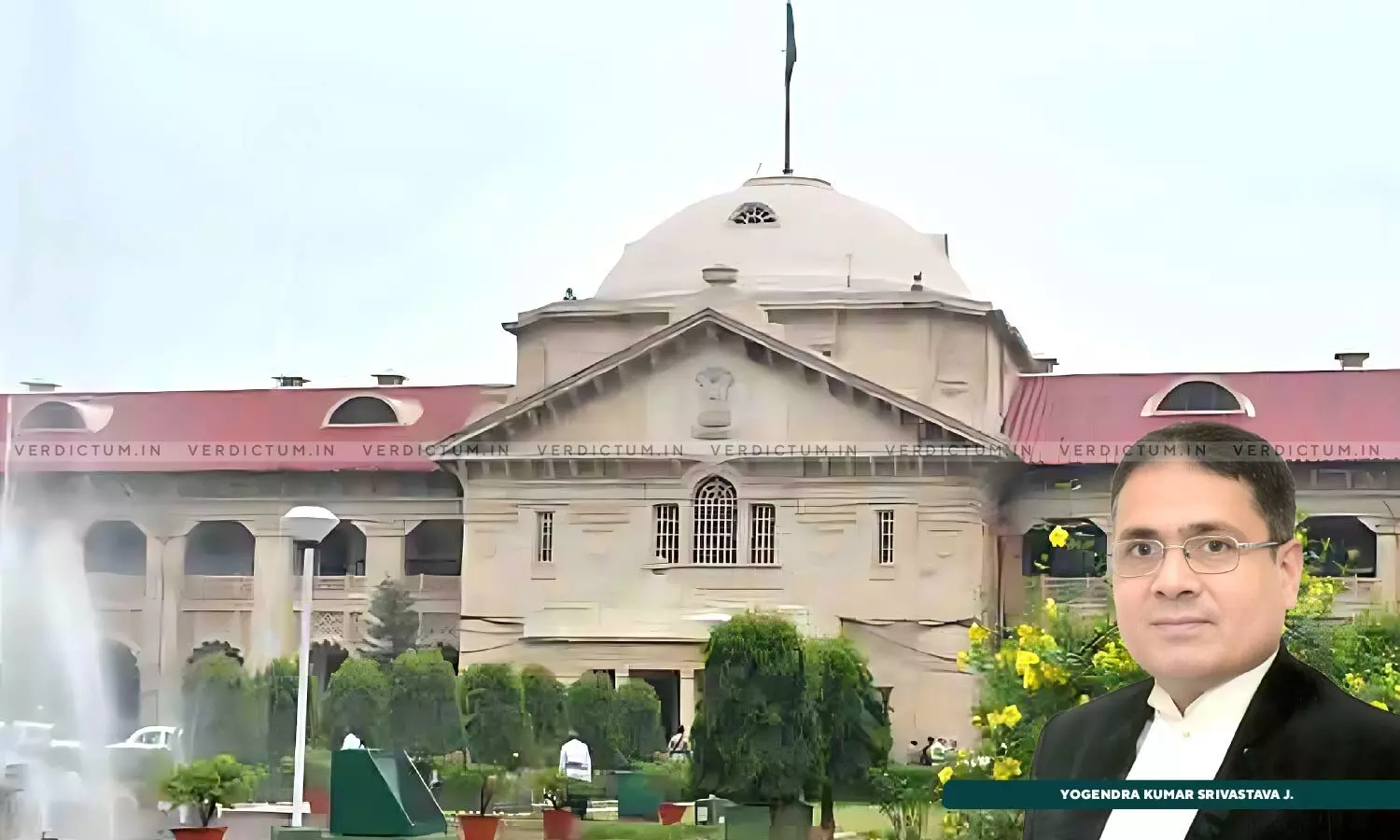
Section 388 Succession Act | Order Of Civil Judge Appealable Before District Judge & Not High Court: Allahabad HC
 |
|The Allahabad High Court held that an appeal from the order passed by the Civil Judge would lie to the District Judge, and not to the High Court as per Section 388 of the Succession Act, 1925.
The Court was deciding a first appeal filed under Section 384(1) of the Succession Act against the judgment of the Civil Judge (Senior Division), by which the application under Section 372 for obtaining Succession Certificate was rejected.
A Single Bench of Justice Yogendra Kumar Srivastava observed, “In the case at hand, the order having been passed by the Civil Judge (Senior Division) having been invested with the power to exercise the function of a District Judge under Part X, the proviso to subsection (2) of Section 388 would be attracted and an appeal from the order passed by the Civil Judge (Senior Division), which is the inferior Court, would lie to the District Judge, and not to the High Court.”
The Bench said that Section 388 of the Succession Act creates a special jurisdiction on a court subordinate to the District Judge through investiture of power.
Advocate Rajesh Yadav appeared on behalf of the appellant.
In this case, a question arose with regard to the maintainability of the appeal in view of the provisions contained in Section 388(2) of the Succession Act, 1925. The counsel for the appellant drew the attention of the Court to Section 384(1) of the Act to contend that an order passed by the District Judge granting, refusing or revoking the certificate under Part X, which relates to Succession Certificate, would be amenable to an appeal before the High Court. It was contended that the Civil Judge (Senior Division) while passing the order on the application seeking Succession Certificate, was acting as a District Judge and accordingly the appeal would lie before the High Court.
The High Court after hearing the contentions of the counsel noted, “Having regard to the forgoing discussion, the use of the deeming clause under subsection (2) of Section 388 would mean that any inferior Court invested with power to exercise the functions of a District Judge under Part X shall, within the local limits of its jurisdiction, have concurrent jurisdiction with the District Judge in exercise of all the powers conferred upon the District Judge, and the provisions of Part X relating to the District Judge shall apply to such an inferior Court as if it were a District Judge.”
The Court further noted that the proviso to sub section (2) of Section 388, states in explicit terms that an appeal from such order from inferior court as mentioned in sub section (1) of Section 384, shall lie to the District Judge, and not to the High Court.
“In "The Construction and Interpretation of Law" by Henry Campbell Black, while considering the manner of construction of provisos it has been stated that the natural and appropriate effect of a proviso to a statute, or to a section thereof, is to restrain or qualify the provisions immediately preceding it”, said the Court.
The Court added that the function of a proviso is to except and to deal with a case which would otherwise fall within the general language of the main enactment and its effect is confined to that case.
“It is a qualification of the preceding enactment which is expressed in terms too general to be quite accurate. As a general rule, a proviso is added to an enactment to qualify or create an exception to what is in the enactment and ordinarily, a proviso is not interpreted as stating a general rule. … The use of a proviso after subsection (2) of Section 388 of the Act has the effect of qualifying or creating an exception by providing that an appeal or any order of an inferior court, as is mentioned in subsection (1) of Section 384, shall lie to the District Judge”, held the Court.
The Court also said that the proviso to subsection (2) creates an exception by providing that an appeal from any order of an inferior court falling within the scope of Section 384 would in such circumstance, lie to the District Judge and not to the High Court.
Accordingly, the High Court permitted the appeal to be withdrawn on request of the appellant’s counsel.
Cause Title- Monika Yadav v. Aakash Singh and 3 Others (Neutral Citation: 2023:AHC: 225713)